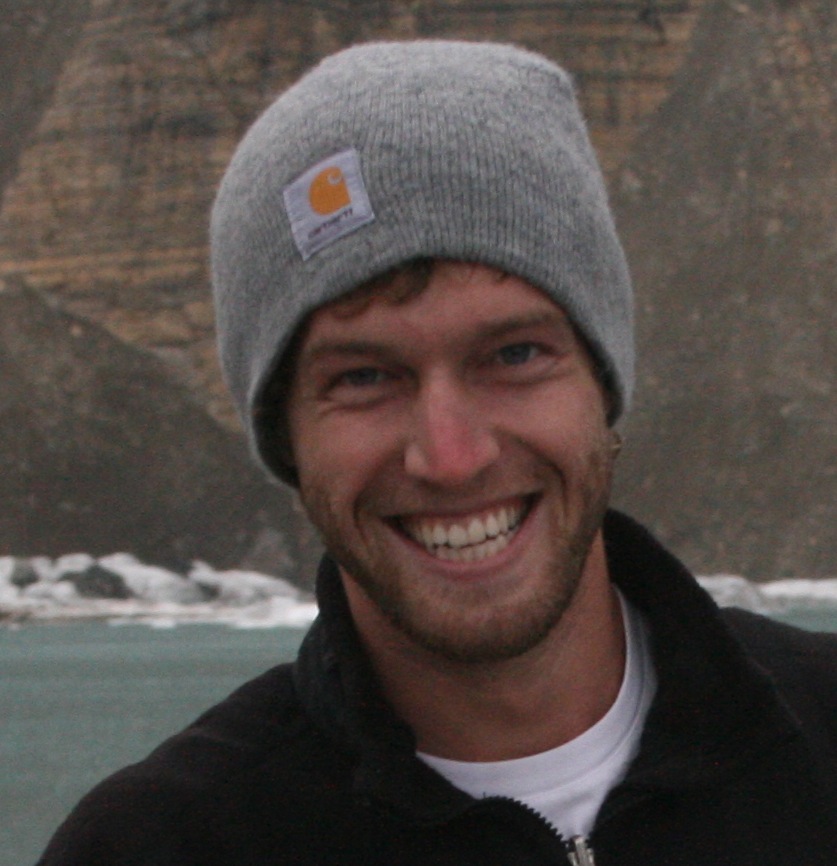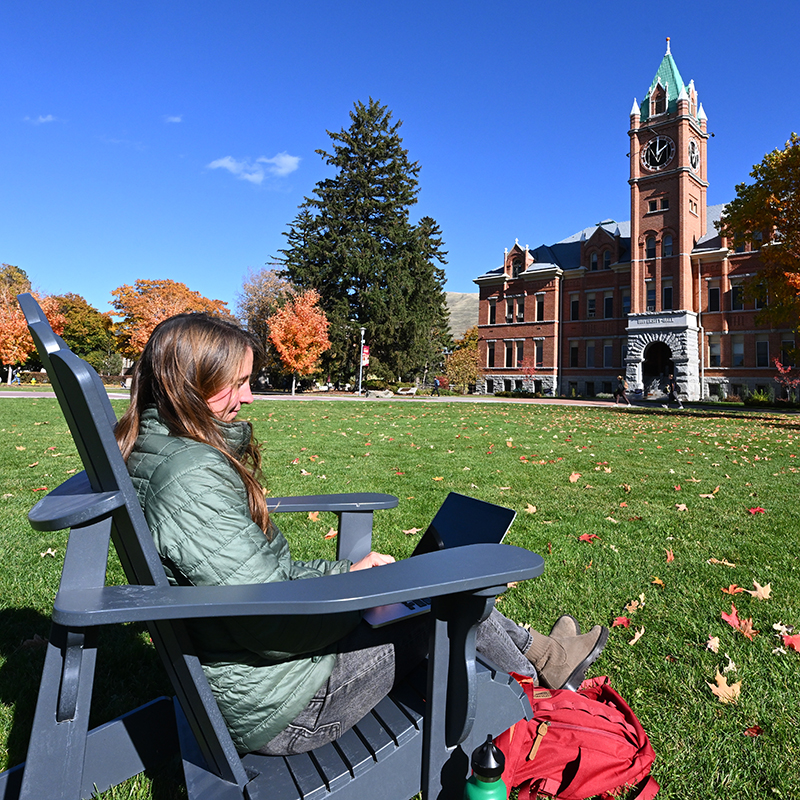Jake Hays
After completing my undergraduate education at Connecticut College in 2006 I took several years immersing myself in a variety of cultures and environments. I spent a couple five month periods in Alaska running sled dogs and nearly a year in Hawaii working as a beekeeper. My background in philosophy, interest in environmental matters, and the stories I heard about Montana ultimately led me to the University of Montana’s Environmental Philosophy MA program. While completing my graduate education at UM I worked on several projects at Environmental Defense Fund and Weill Cornell Medical College that not only influenced my decision to one day practice environmental law, but also led to my current position at a non-profit.
I work as a program director for the multi-disciplinary non-profit Physicians Scientists & Engineers for Healthy Energy (PSE). This independent organization is dedicated to providing objective, scientific information on unconventional gas development, other novel energy production methods, and energy use by society. PSE’s mission is to bring transparency to public policy discussions in order to level the playing field for citizens, advocacy groups, media, policy makers, and politicians by gathering and disseminating accurate, scientific information on novel energy production and use.
My position requires me to review a broad distribution of scientific literature, formulate policy statements, inform experts on emerging scientific and policy issues, and communicate on the organization’s behalf. Among a number of projects at PSE, I’ve had the opportunity to co-author several articles, provide written and oral testimony for New York State Assembly hearings, help advise a number of professionals working on the issue, work on epidemiologic studies, and organize a conference in DC that brought together over one hundred physicians and public health experts to investigate the public health and epidemiological implications of shale gas development.
I came to this position after a range of experiences centered around a theme that traced itself through physical, theoretical, and practical engagements with the environment. At UM I was able to supplement my physical experiences in the natural world with philosophical inquiry. The program furthered my analytic skills and because it was interdisciplinary helped foster an understanding of environmental science, management, and policy. In my exploration of issues like conservation, climate change, and synthetic biology I began to notice a legal aspect in the work I was doing. Applied ethics is, after all, deeply entwined with policy making and legislation.
For my summer internship in between semesters I worked at Environmental Defense Fund in New York City, where I helped formulate ethical principles for a geoengineering research agenda. It was here that I also got my first true taste of the legal world in the evaluation of the legal briefings for a California case involving the Low Carbon Fuel Standard, part of the Global Warming Solutions Act (AB 32). At this juncture I began to understand why law school offers a strong vehicle for influencing environmental policy. I continued my graduate work at UM with the intent of attending law school the following year to pursue a career in environmental litigation and advocacy from a public interest standpoint.
In my last semester of graduate school I worked part time as a research associate for Weill Cornell Medical College (via teleconferencing & online research). Here I was introduced to the contentious issue of unconventional natural gas development of shale formations, (also known as high-volume, slick water hydraulic fracturing or “fracking”). With WCMC, I conducted a systematic survey of the medical literature for epidemiological studies pertaining to shale gas extraction. In this project my work extended into the realm of public health, which clearly overlaps with environmental protection. Issues like energy extraction require the attention of multiple disciplines. It is crucial to understand how to apply one’s own background to issues that require the input of more than one perspective.
In my current position at PSE I gained an important understanding of how science can and should inform policy matters. I also developed an even better sense of how the law ultimately shapes environmental outcomes. This understanding really began during my time at EDF, but it was significantly furthered by my involvement in the issue of unconventional gas development in New York. I’ve also become immersed in a varied network of professionals all over the country, including environmental lawyers, epidemiologists, physicians, scientists, and yes, even ethicists. Because of my current work I have decided to postpone law school for another year. However, the skills and contacts I will continue to acquire will aid both with future law school applications and professional development.
Throughout my experience I have found networking and communication to be of the utmost importance. Hard work and diligence should not be down-played, but even more important are contacts made and relationships fostered. Every opportunity I’ve been given has been a result of networking and this will certainly continue to be the case during and after law school. One should not be timid, but persistent in reaching out to people. Take advantage of talking to faculty members as they oftentimes have not only good advice, but also important contacts in the community. Finding mentors is ideal and one should talk with as many people as possible in a field of interest. Find out about the steps they themselves took and where the best opportunities currently reside in that field. Stay in touch with these people in order to be able to seek their help later on.
It is also useful to develop a consistent theme in one’s work, study, and interests. For me that theme was the environment and I was able to revisit this passion in a variety of ways, both personally and professionally. In some cases students will be able to choose the exact area in which we want to get involved, but in many cases that area will choose them. Planning certainly plays a large role in where one ends up, but so does chance. One should be flexible and open-minded throughout the process and willing to reconsider past plans if new and interesting opportunities arise. It is important (especially for undergrads) to explore and gain exposure to as many areas as possible. Interests change and new issues arise. Ideally one can find meaning and purpose in a larger topic (e.g. the environment, social justice, etc), and then be able to apply this to a number of related, though often dynamic projects.
Internships are one of the most valuable ways of gaining experience in a field of interest and are an essential part of a resume. Most places would love the help of a intern and if a student is eager enough he/she can create a project or position if it does not already exist. Internships are a great way to get a foot in the door not just in a specific organization, but in a entire field. If possible one should be willing to offer his/her services free of charge as this will provide more and greater opportunities. Internships can always take place part time and be supplemented with an actual job or class work. The summer I interned at EDF I spent three other days a week working for a green bakery in Manhattan. For about ten hours a day I delivered food with a rickshaw bicycle among five store locations scattered among Chelsea, Soho, the East Village and the West Village neighborhoods. The other two days of the week I worked at EDF, which offered the perfect mental compliment to the grueling physicality of the biking job.
Networking enabled me to land my part time positions at EDF and WCMC (the former was unpaid) and without these I would have neither my current job nor as strong of an application for law school. Again, this began with various labor intensive jobs that allowed me a depth and meaning in my interaction with the environment. This ethos eventually manifested itself in my practical work later on. It is important to recognize these connections and cultivate them accordingly. Internships offered me the perfect transition to be able to do so, but I can never downplay the skills I developed at the university. The study of philosophy not only provided me with the perspective to recognize and appreciate the developments in my life, but also a very strong practical skill set. This gave me the ability to adapt to a variety of topics and disciplines, which is why I am now working on public health and energy issues. One should be aware of how issues are often interconnected across disciplines and market him/herself accordingly. In this regard, philosophy has been eminently useful and my time at UM incredibly valuable.

